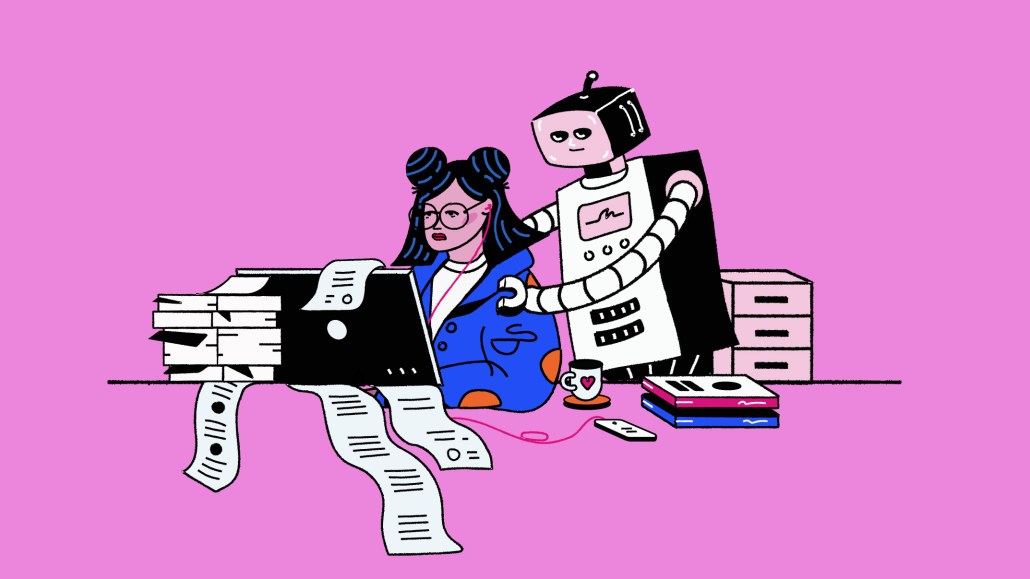Secure your place at the Digiday Media Buying Summit in Nashville, March 2-4

This article was first published by Digiday sibling WorkLife
Will AI take the “human” out of human resources?
That’s the question experts are trying to answer. With the boom in attention around generative AI across all sectors this year, the pressure to leverage AI developments to improve both customer and workforce experiences has intensified. But the million-dollar question remains: What is the right balance between capitalizing on the opportunity of AI within workforces without neglecting the vital role human employees play?
The bulk (92%) of HR leaders intend to increase their AI use in at least one area of HR, according to a recent report from AI acquisition and talent and recruiting platform Eightfold. But HR leaders also face the same challenge most of us do: they don’t all know how to use generative AI tools like ChatGPT, what questions to ask AI vendors, and what policies to put in place so it’s used responsibly.
Meanwhile, the immediate benefits that AI can offer when it comes to traditional HR functions, like job hiring and people decisions, make it vital for HR professionals to get a handle on the complex underlying flaws the tech currently has. For example, much of ChatGPT is trained on large datasets from the web, which is full of misinformation, and causes the dreaded “hallucinations.” And the confidence with which the chatbot can relay such false information, can fool even highly-trained legal professionals. But also, there are valid concerns around AI tools being discriminatory – a vital area HR execs must be across.
To read the full article click here
More in Media

Media Briefing: Turning scraped content into paid assets — Amazon and Microsoft build AI marketplaces
Amazon plans an AI content marketplace to join Microsoft’s efforts and pay publishers — but it relies on AI com stop scraping for free.

Overheard at the Digiday AI Marketing Strategies event
Marketers, brands, and tech companies chat in-person at Digiday’s AI Marketing Strategies event about internal friction, how best to use AI tools, and more.

Digiday+ Research: Dow Jones, Business Insider and other publishers on AI-driven search
This report explores how publishers are navigating search as AI reshapes how people access information and how publishers monetize content.








